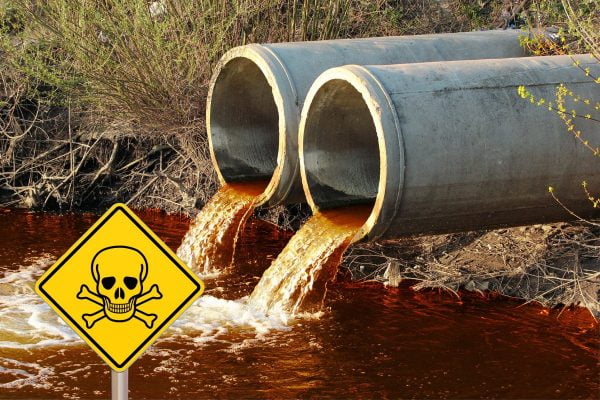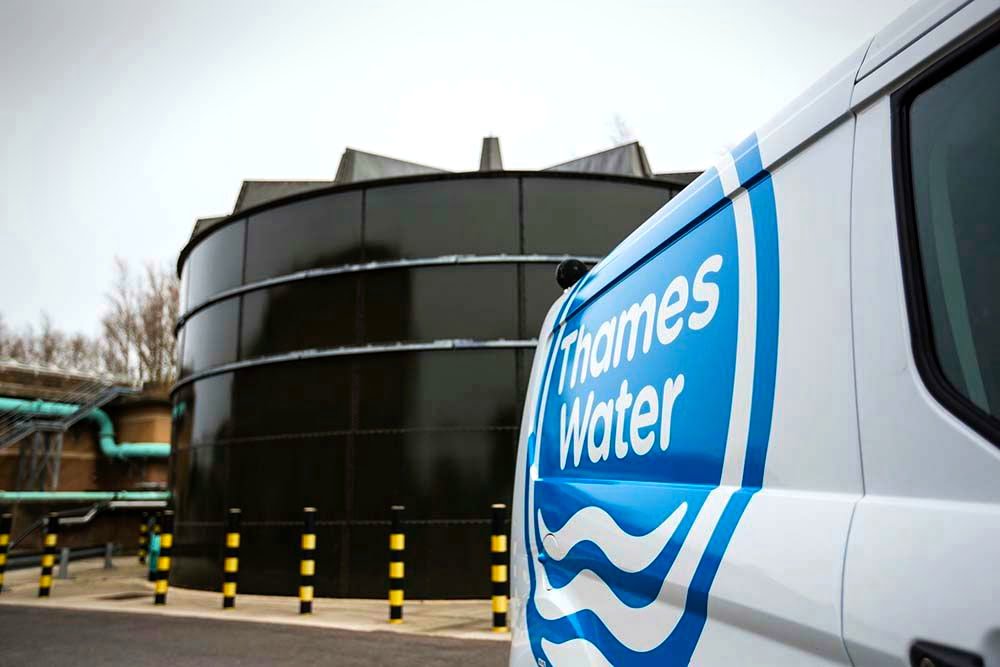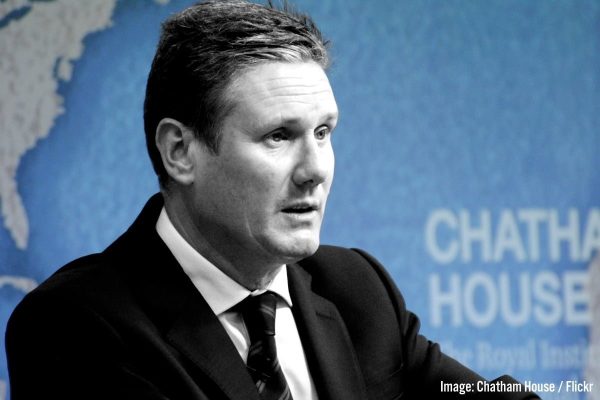Thames Water, the UK’s biggest water monopoly, is facing big problems. Having racked up £14 billion in debt – 80% of its company value – the threat of bankruptcy looms large.
A rise in borrowing costs, fuelled by the Bank of England’s hikes in interest rates, has heaped enormous pressure on Thames Water, further enlarging its huge debts.
As a result, the company, which serves almost a quarter of Britain’s population, is now swimming in troubled waters.
And Thames Water isn’t the only utility firm facing trouble. Four other large water companies in the UK are considered to be in severe financial difficulty. The entire water industry is drowning in debt.
Privatisation
Decades of privatisation have transformed the water industry from a public resource into a tool for speculation and profiteering in the hands of the capitalists.
When the water industry was privatised by Thatcher’s Tories in 1989, its debts were wiped clean using public money. Since then, the industry has taken on over £60 billion in debt, making it one of the most indebted parts of the UK economy.

A widely-used practice by parasitic owners is to plunge an acquired company into insurmountable debt, and then to use the funds to pay large dividends to shareholders.
This pillaging has been used by monopolies like Macquarie, an Australian investment group who have large stakes in infrastructure across the world.
Macquarie and its partners tripled Thames Water’s debt, from £3.4bn in 2006 to £10.8bn in 2017. And then, after paying out a handsome £2.7 billion in dividends, these vultures sold their share of the firm to the highest bidder.
Even Thames Water’s own CEO, who was recently forced to resign, complained that the company is suffering from “decades of underinvestment, which has led to cost-cutting and some poor decisions, leaving the business in a really debilitating state”.
Macquarie are not the only ones filling their pockets, however. The entire utilities sector has been carved up by private investment groups, many of whom are based overseas.
This crisis is not simply a result of greedy bosses or poor regulation, however, as some have claimed. This parasitism is driven by capitalism’s insatiable thirst for profit. This senile system is simply unable to ensure that essential services are provided to millions of people.
Underinvestment
Underinvestment has plagued the entire water industry since it was privatised. Rather than improve and upgrade the water infrastructure, the bosses have cut corners at every turn, causing tremendous waste and environmental damage.

Water pollution has risen to an extreme level. Last year, there were more than 389,000 sewage spills, as companies dumped untreated sewage into rivers and streams for more than 1.7 million hours.
Crumbling infrastructure means that leakages now plague the network as well. An estimated 250 Olympic-size swimming pools worth of water leaks from pipes across the country every day. This means that one-fifth of water is wasted before it even reaches customers’ taps.
And to make matters worse, the climate crisis is set to make droughts – like the one last summer – a regular occurrence.
The leeches responsible for this mess are ‘punished’ through fines that amount to a mere slap on the wrist. Ordinary workers, meanwhile, are expected to pick up the tab through state bailouts and extortionate increases in household bills.
Water bills have increased by 40% since water was privatised, and are set to increase by a further 40% by the end of the decade. With the cost of living already soaring, the 7.5% hike in April this year has already pushed a large number of families to the brink.
Nationalisation
With bankruptcy looming, the government is now considering nationalising Thames Water at the public’s expense. As a last resort, they might place the company under a ‘special administration regime’ – the same measure used when energy company Bulb went under in 2021.
The purpose of such a move would not be to improve and upgrade the water infrastructure for the benefit of the public. Rather, the aim would be to get the company back on its feet, and re-privatise it at the soonest opportunity.

But even this soft measure has been met with fierce opposition from the bosses. A leaked confidential email from Severn Trent’s CEO Liv Garfield revealed her attempt to form a taskforce with other water companies, to pressure the government into abandoning these plans.
With public support for nationalisation of water and utilities as high as 69%, other rapacious companies are no doubt afraid that they could be next in line.
Indeed, this financial armageddon is by no means confined to the water industry. One financial report states that “over half of the UK’s remaining domestic electricity and gas suppliers are technically insolvent and at imminent risk of collapse”.
Similarly, Royal Mail’s bosses have also warned that the company is on the brink of insolvency, and is making losses of up to £400 million each year.
Whether it’s water, energy, mail, or rail – it’s clear that privatisation is a recipe for rip-offs and disaster.
Socialism
Despite the bosses fears, it is clear that the Tory government would never dream of nationalising the utilities sector completely. The Tories are sworn defenders of the bosses’ interests.
Given the overwhelming support for the nationalisation of utilities, you would think that calling for nationalisation would surely be an open goal for the opposition. Think again!

‘Sir’ Keir Starmer has long abandoned any calls for nationalisation, and has made it clear that a Labour government would leave privatisation – and the bosses’ profits – untouched.
It is clear that neither the Tories nor Starmer’s Labour are willing – or able – to solve this crisis. As long as utilities remain in the hands of the parasitic monopolies, profiteering, pollution, and underinvestment will continue to run rampant.
The only solution to this mess is to fully nationalise the utilities sector – not in the interests of the bosses, but under the democratic control of the working class.
To save the water industry, a massive programme of investment is needed to build new reservoirs and sewage treatment plants, and to fix the decrepit water network, as part of a socialist economic plan.
The billions required for such a project must be seized from the bankers and bosses who are responsible for this crisis.






